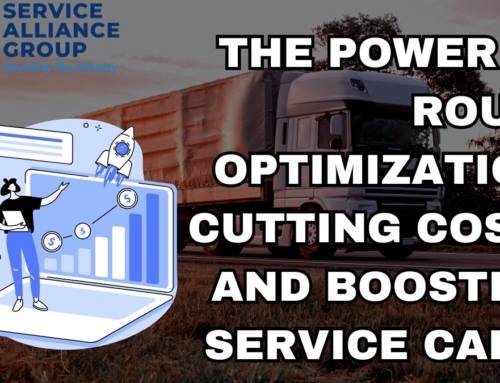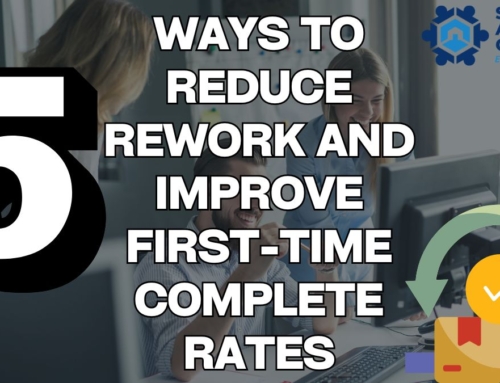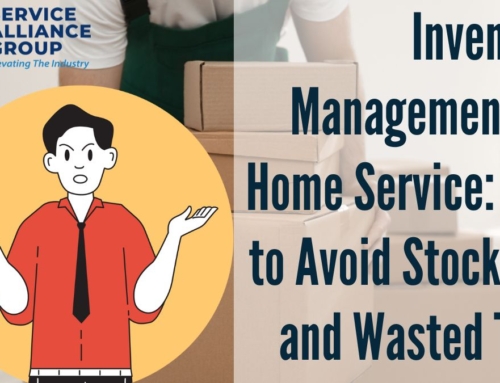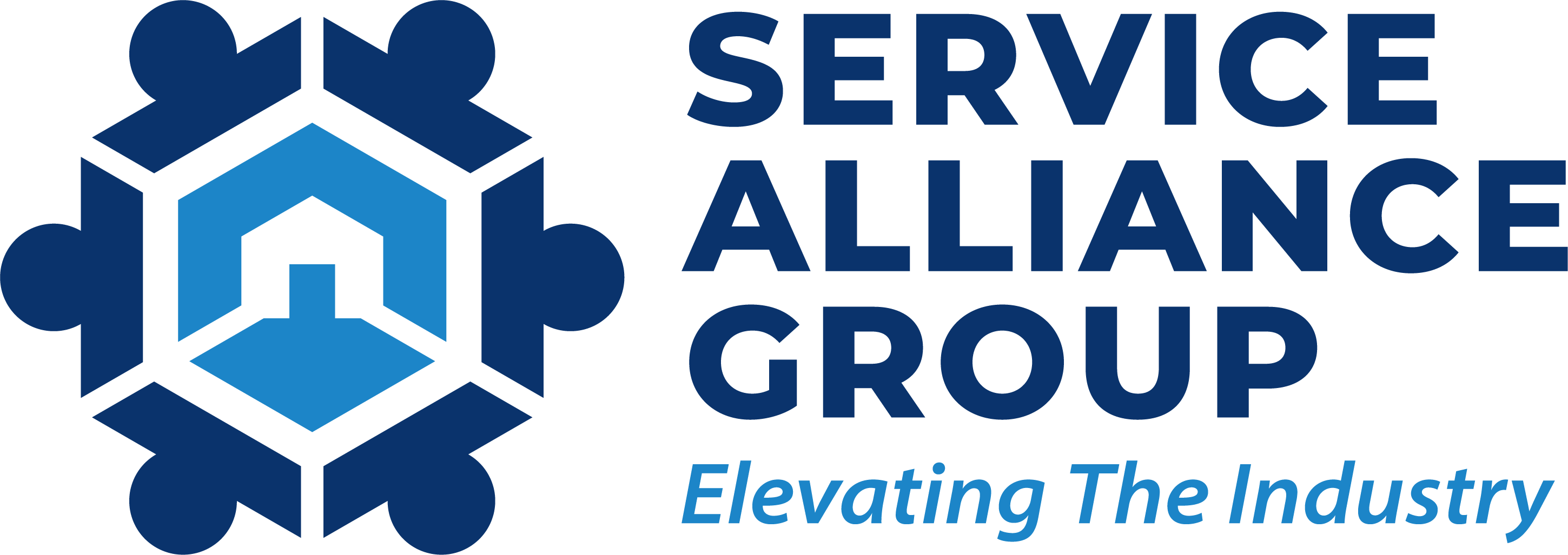What it takes to build a service business worth buying
The process of starting a service business is exciting and rewarding, but there are also challenges. Many entrepreneurs have difficulty building a profitable business that attracts buyers. You must take certain steps in order to make sure your service business is ready for purchase if you are seeking to create a service business worth buying. We will discuss the key elements necessary for building a home service business that people will be eager to buy in this article.
This was also a topic of discussion on the Service Alliance Podcast where Mike and Jason discussed the strategies below that potential buyers would be looking at when evaluating a home service business for acquisition. Here’s the video titled “What’s Your Service Company Worth To Others”

Should a Home Service Business Have An Exit Strategy?
A home service business needs a solid exit strategy, especially one that will allow it to capitalize when it is sold. If a business owner chooses to sell their business, an exit strategy allows them to plan ahead. In addition to protecting their assets, an exit strategy will maximize the value of their company when it is sold.
The owner of a business should develop an exit strategy that includes how much money they want to make from selling their business, and what steps he or she needs to take to achieve that goal. If they want to make their business more attractive to buyers, they may want to increase customer satisfaction, reduce costs, or expand services. To ensure that they are getting the best deal for their business, they will also have to research potential buyers.
Home service business owners can also feel secure knowing that they have a plan in place in case things do not go as planned with their venture if they have an exit strategy. Having this kind of flexibility can be helpful to owners when deciding whether or not to sell their company or continue to run it.
In general, any home service business looking to sell it down the road needs to have an exit strategy in order to get the most out of it. In addition, it gives owners the opportunity to take steps ahead of time to increase the value of their property before it goes on the market so that they know exactly what they expect from the sale.
Why is Building a Sellable Service Business Desirable?
The ability to build a sellable service business is highly desirable for several reasons. One of the most important factors is profitability, as a profitable business is more likely to attract buyers above its fair market value. Potential buyers are often interested in businesses that generate consistent revenue and are profitable, so financial health and stability play a significant role in determining their value. The ability to demonstrate financial success through well-prepared balance sheets and cash flow statements can make the business more appealing to buyers.
A sellable service business also benefits from effective marketing. By showcasing the company’s unique value proposition, customer base, and future cash flow potential, effective marketing strategies can attract potential buyers. Service businesses can attract more customers and increase their visibility by implementing a solid marketing plan and reaching a wide audience.
Getting all of the relevant information about the business’s assets, such as customer concentration, market analysis, and details about the business, is crucial to preparing the service business for sale. In order to attract buyers who see value in the service company, it is imperative to identify individuals who can manage the business on a daily basis. Understanding the business’s potential and its target market is also vital. Potential buyers can feel reassured that the business will continue to thrive under new ownership by having a competent team in place.
Understanding Your Market
Building a service business worth buying requires a thorough understanding of your market. Performing a comprehensive market analysis is the first step towards this. It is possible to gain valuable insights into a business’s profitability and growth potential by researching its industry, location, and current trends extensively.
Your service business can be effectively positioned and differentiated from its competition by learning about your key competitors, market trends, and potential opportunities by studying the industry. In addition, knowing the geographical location helps determine the target market and tailor marketing efforts accordingly.
The target market and potential buyers must also be understood. When it comes time to sell, it is critical to identify potential buyers who align with your business goals and values. Knowing your ideal customers and their needs will help you develop marketing strategies.
There are several factors to consider when evaluating the market value of your service business. Geographic location may influence the value of a business, as certain areas may have higher demand or specific regulations. Moreover, the ability to expand into new markets or complementary industries should be assessed for strategic value.
Developing a Solid Home Service Business Model
As a first step toward starting a home service business, you need to develop a strong business plan. In addition to assessing potential customer needs and offering services, a good home service business model should include strategies for marketing, pricing, recruiting, and managing employees. In addition to business aspects, you should also consider how your home service will fit into your local community.
Defining the service offering, market segmentation, pricing structure, and marketing channels precisely is essential to ensuring that the business model is profitable and sustainable. In addition, you should assess the competition and figure out how you can stand out from other home service providers in your area.
Building an Effective Brand Identity
In order to distinguish yourself from competitors and build a strong connection with customers, it is important to establish an effective brand identity for your service business. A brand is more than just a business name or logo; it is a set of principles and design specifications that tell your story, create consistency, and build trust.
The components of a brand identity work together to create a cohesive and memorable image of your organization. You should clearly define your products and services as well as your target audience before establishing your brand. Establishing your brand begins with defining who you are and what you sell.
It is also important to include a mission statement and values as part of your brand identity. By sharing these core principles, your ideal customers will be able to connect with your purpose and values.
You also need to consider your unique selling proposition (USP). This is what makes your company unique and makes you stand out from the competition.
In order for your brand to be recognized and trusted among your target audience, every touchpoint, such as your website and social media presence, should be consistent.
What potential buyers look for when evaluating a home service business
A prospective buyer evaluates a home service business based on several factors to determine its value and potential. Tracking KPIs for some of the following items could also help you command a higher price.
A buyer’s attention is drawn to the following factors:
- Profitability: This is often the primary factor. A track record of consistent profits and a clear projection of future profitability make a business attractive.
- Recurring Revenue: Businesses with recurring revenue (subscriptions, long-term contracts, etc.) are more valuable because they can more predictably forecast their future income.
- Diverse Customer Base: Relying too heavily on a few big clients can be risky. A broad and diverse customer base is more stable and less vulnerable to the loss of any single customer.
- Strong Brand and Reputation: A well-established brand can bring in customers and command loyalty, often allowing for higher pricing or better terms.
- Effective Systems and Processes: Operational efficiencies, documented workflows, and automation can demonstrate that a business can run smoothly without constant business owner intervention.
- Growth Potential: Even if a business is currently small, showing potential areas for expansion or scalability can increase its attractiveness.
- Clean Financials: Transparent, organized, and audited financial statements provide credibility and make due diligence easier for potential buyers.
- Competitive Advantage: Any edge over competitors, whether it’s in technology, intellectual property, exclusive contracts, or other factors, can make a business more appealing.
- Talented Workforce: A skilled, motivated, and stable team means that the business can continue to operate efficiently after a sale.
- Diversified Supplier Base: Just as with customers, reliance on a single supplier can be a risk. Multiple supplier relationships can mitigate this risk.
- Low Debt Load: A business with little to no debt is typically more attractive as it represents lower financial risk.
- Business Assets: Tangible assets (like equipment or real estate) and intangible assets (like patents or trademarks) can add significant value.
- Regulatory Compliance: Ensuring that the business complies with all local, state, and federal regulations will reduce potential liabilities for a new owner.
- Adaptable Business Model: Businesses that can pivot in response to market changes or disruptions have a better chance of long-term success.
- Loyal Customer Base: High customer retention rates and repeat business are indicators of a strong, sustainable business.
- Positive Online Reviews and Presence: In today’s digital age, online reputation can significantly impact a business’s value.
- Barriers to Entry: If it’s hard for new competitors to enter the market or challenge the business, it’s a positive sign for potential buyers.
- Location: For a brick-and-mortar business, or hybrid service businesses, location can be crucial. A prime location can significantly increase the value of a business.
- Current Contracts in Place: Existing contracts, especially long-term or high-value ones, can represent guaranteed future income.
- Future Vision: Demonstrating a clear vision or roadmap for the business’s future can instill confidence in potential buyers. A business plan that’s updated regularly and includes detailed goals is particularly attractive.
- Experienced Management Team: A competent and experienced management team can help ensure the smooth transition of ownership. Having an experienced hand to guide the business through the change can be particularly valuable.
There are different priorities for different buyers. While some might be concerned with profitability, others may be concerned with strategic assets or growth potential. Making sure your business’s presentation is tailored to the specific interests of your target buyers is one of the best ways to maximize its sale value.
How to value a home service business
An expert business valuator or appraiser might be needed to estimate the value of a home service business. However, here is a basic overview of some commonly used methods:
- Earnings Multiplier/Price-to-Earnings (P/E) Ratio: This method calculates value by multiplying your business’s recent profit by a certain number (the multiplier). This multiplier can vary based on the industry, economic environment, and other risk factors. For example, if your business earned $100,000 last year and you use a multiplier of 5, then your business value would be estimated at $500,000.
- Net Asset Method: This method is based on the total assets minus total liabilities. It gives you the net asset value, essentially telling you how much money you would have if you sold all assets and paid all liabilities. It’s particularly suitable for businesses where assets play a crucial role, such as manufacturing or real estate.
- Discounted Cash Flow (DCF): DCF estimates the value of a business based on its projected future cash flows. These projections are then “discounted” to reflect their present value. This method is more complex and requires making assumptions about long-term growth rates and discount rates.
- Sales Comparison Approach: Here, the business’s value is determined by comparing it to the sale prices of similar businesses in the same industry. This is somewhat akin to how homes are valued in real estate, but it’s harder to find comparable business sales.
- Revenue Multiplier: Similar to the earnings multiplier, but instead uses gross revenue. For example, if a business has sales of $500,000 and businesses in that sector are selling for 0.5 times revenue, the business would be valued at $250,000.
- Book Value: This is the value of the company according to its balance sheet, with assets and liabilities giving a net worth. However, it may not always reflect the true value of the business, especially if it has significant intangible assets or potential.
- Capitalization of Earnings: This method calculates the business value based on the expected return on investment (ROI). The annual earnings are divided by a capitalization rate (desired ROI).
- Industry Rule of Thumb: Some industries have general rules of thumb for business valuation based on key metrics specific to that industry.
- Intangible Value: If your business has significant intangibles (like brand reputation, intellectual property, or customer loyalty), you might also need to factor these into your valuation, often requiring specialized valuation experts.
- Situational Factors: External factors can also impact your business’s value. This includes the current economic climate, industry trends, or regulatory environment.
In order to get a comprehensive view of your business’s value, it’s best to use several methods and weigh them according to relevance. If your business is complex or has significant intangible assets, you should consider hiring a professional business valuator.
Wrap up
In conclusion, there are a number of different methods for valuing a service business, and depending on the complexity and specific situation, you may need to use several of them in order to get an accurate estimate. A professional business valuator is recommended if your business has unique or intangible assets that need to be taken into consideration. Ultimately, it’s important to consider all relevant factors when determining the value of your service business in order to ensure that you receive a fair price.
About The Author
Mike Carson is an SEO expert, web designer, internet marketer, and co-founder of Service Alliance Group. Mike runs his Marketing Agency, Appliance Marketing Pros, in Joliet, IL. Mike and his team specialize in helping home service businesses optimize their websites for organic leads and search traffic using scientific, trust-based SEO methods. He is passionate about the power of digital marketing and loves to share his insights with others.






